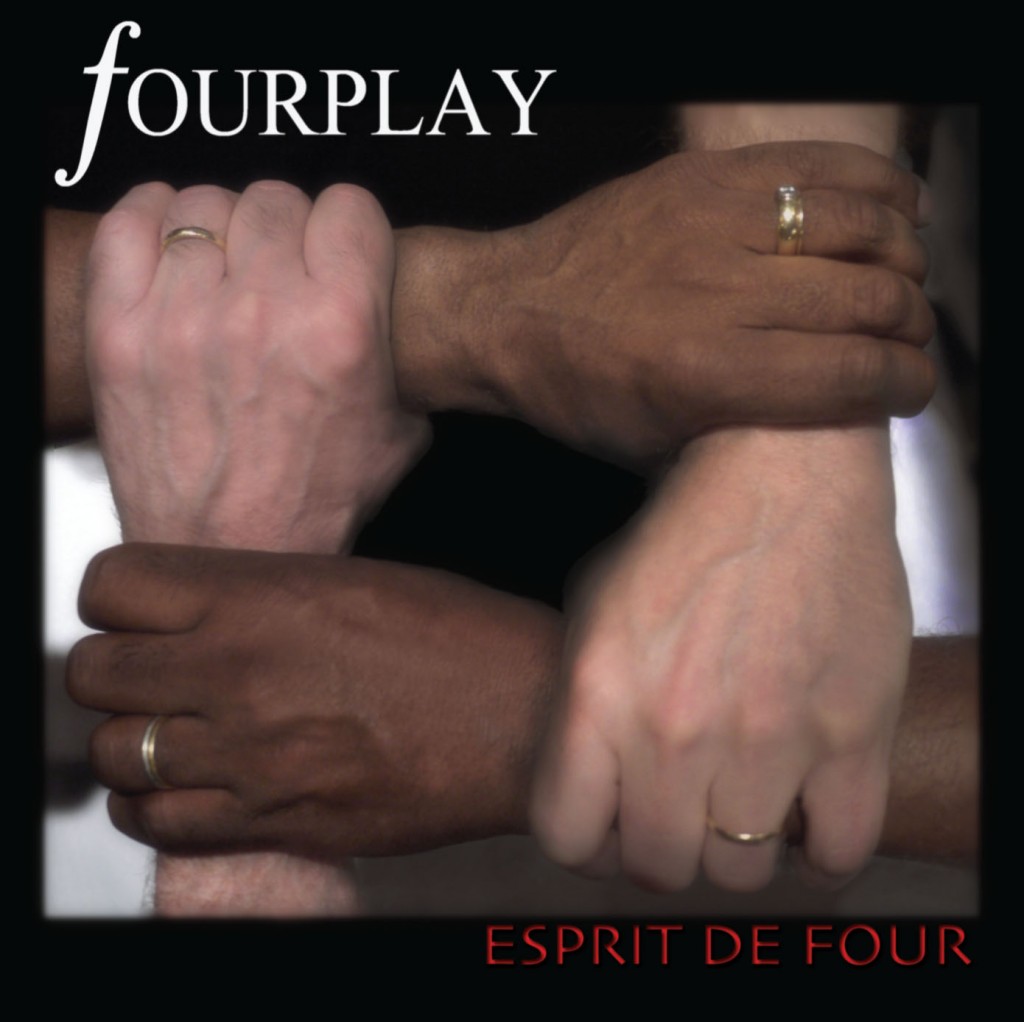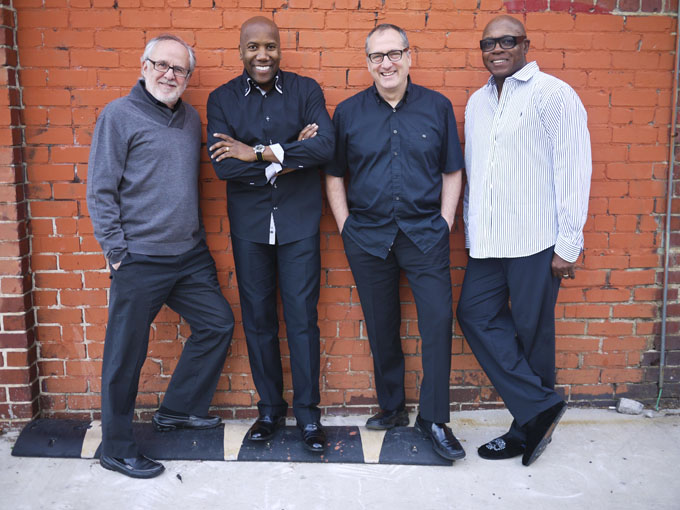 Fourplay may well be the last true super group left on the contemporary jazz scene. Their new release Esprit De Four which may be arguably their best release thus far has just hit the streets and Bob James was kind enough to field a few questions both on the band and on their stellar new release!
Fourplay may well be the last true super group left on the contemporary jazz scene. Their new release Esprit De Four which may be arguably their best release thus far has just hit the streets and Bob James was kind enough to field a few questions both on the band and on their stellar new release!
Can you tell us about the origin of Fourplay? Also Esprit De Four celebrates the greater good of a rock solid quartet. Is this perhaps the most collaborative release to date?
B.J. – “Yes, from the beginning of launching this group our primary goal was to establish a group identity. And we have continued to refine that concept, finding ways to take advantage of the unique skills of each member and incorporating them into the group sound. We’ve learned along the way that compromises have to be made. But when the team spirit is at its best, compromise turns into cooperation. The end justifies the means.”
 Arguably, Fourplay is perhaps the last “super-group” in contemporary jazz. Do you remember a time when it hit you that Fourplay was really something special?
Arguably, Fourplay is perhaps the last “super-group” in contemporary jazz. Do you remember a time when it hit you that Fourplay was really something special?
B.J. – “We felt it was very special right from the beginning, but we knew we had to earn super-group status, if there is such a thing. I hold the other 3 guys in such high esteem that I know I have to give it my best just to keep up.”
Considering the diversity in personnel including the ability to find the right voice when change were made, what is the most important thing you may have learned as a musician?
B.J. – “I always think about trying to enjoy the process. If we are having a great time in the studio, putting full energy into the process, we have the best chance that the music will speak to our listeners.
 Contemporary jazz has fractured itself into the format driven sub genre known as smooth jazz. Does this help or hurt the overall appeal of contemporary jazz in general?
Contemporary jazz has fractured itself into the format driven sub genre known as smooth jazz. Does this help or hurt the overall appeal of contemporary jazz in general?
B.J. – “I’m a believer in opening doors, in crossing boundaries. Narrow minded opinionated thinking results from putting up barriers. There is no one correct way to make music. It’s great there are many stylistic approaches; that makes for healthy exploration. I try to learn from listening and appreciating the best in all areas of music.”
How has the growth of numerous technology platforms helped or perhaps hindered artists in an effort to work smarter not necessarily harder?
B.J. – “Technology certainly has its place. We need instruments, and ways to get our music to its audience. I am very happy that I’ve spent my professional life during the development and refinement of recorded music. Our best way to grow an audience is to use every skill and technique we can acquire to strive for the best art we can make.”
 Finally, “Sugoi” and “Put Our Hearts Together” are two beautiful pieces of work from the new release. Do you compose differently for the group as opposed to other projects? Also who is catching your ear these days in the jazz world?
Finally, “Sugoi” and “Put Our Hearts Together” are two beautiful pieces of work from the new release. Do you compose differently for the group as opposed to other projects? Also who is catching your ear these days in the jazz world?
B.J. – “Thank You! The influence of Japanese culture was a significant factor in both of those songs. Yes, I definitely think of the individuals and of the collective sound of Fourplay when I’m composing for a group project. But the creative process remains a mystery to me. I never really know when or how the ideas will come. I just love working at it and hoping for the best. I listen frequently to other artists, but I won’t reduce it down by mentioning them by name. It might go to their heads! Or those that I leave out or forget to mention might get mad at me :).”
